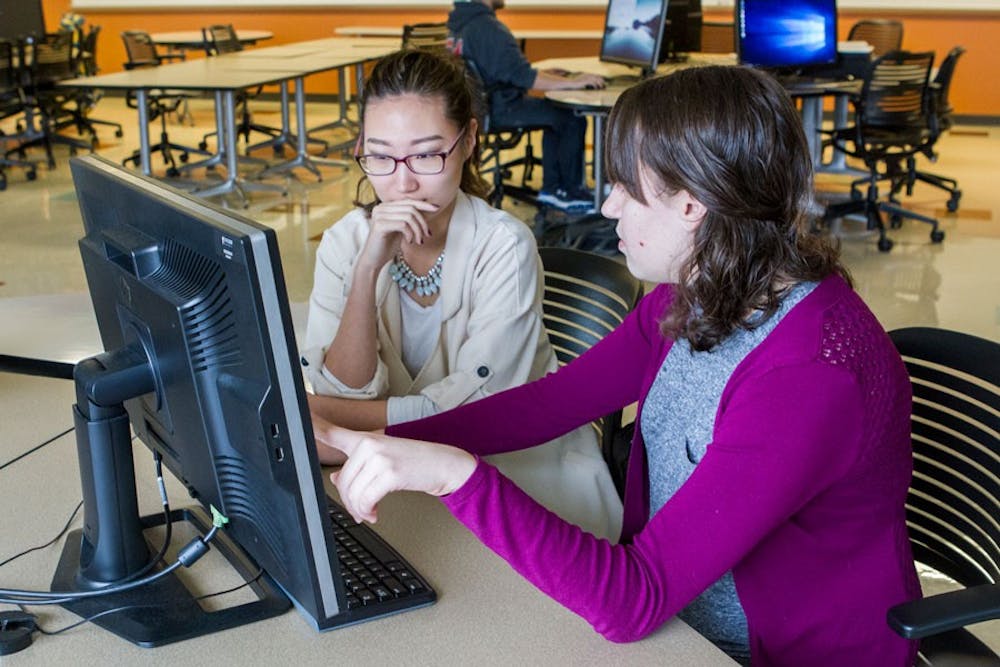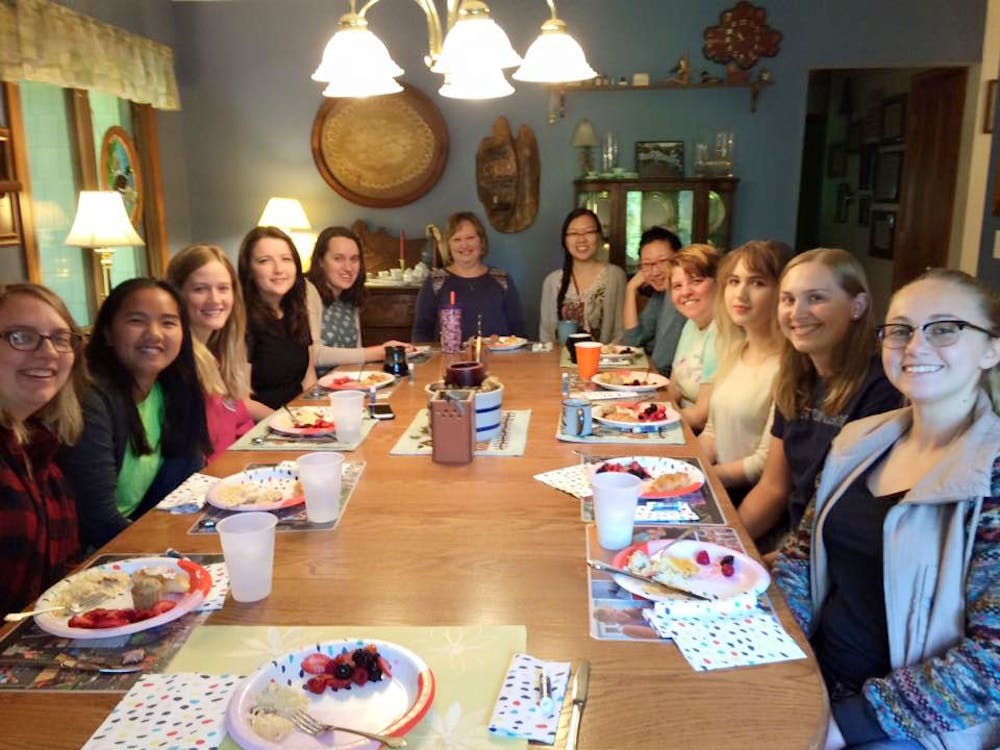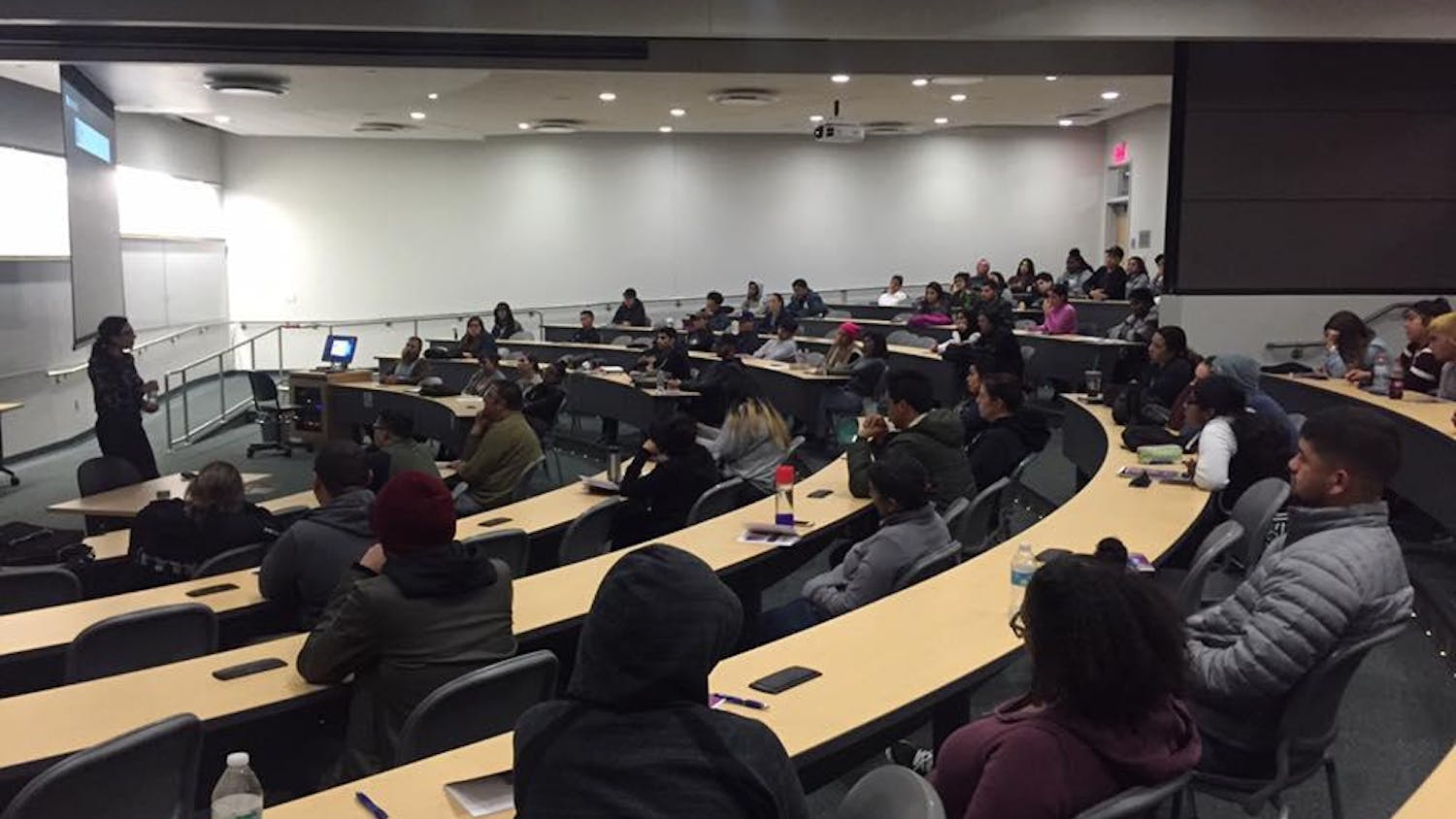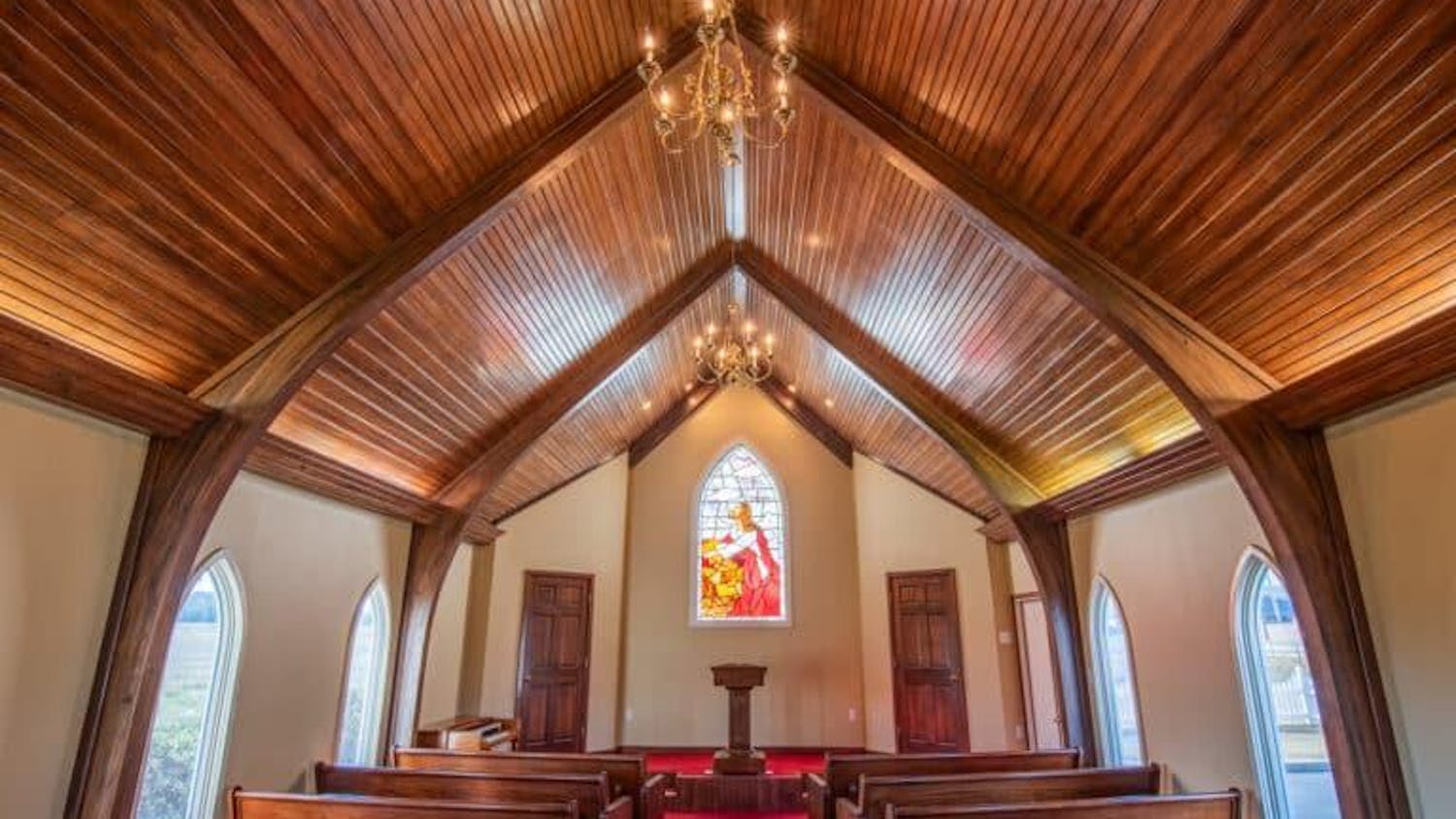By Annabelle Blair | Echo
TWEET
A new club focused on empowering and supporting women in engineering, science and technology fields has been approved by Taylor's Student Senate and is in the final stages of becoming official.
Taylor Women Engaging in Engineering and Technology (TWEET) is the first known club of its kind on campus, focused specifically on female science, technology, engineering and math (STEM) students-according to Steve Austin, director of student programs, and Connie Lightfoot, retired dean of the school of social sciences, business and education.

Co-founders and presidents Cassie Long, a senior systems engineering major, and Eliza You, a sophomore computer science major, want TWEET to be a starting place for women to connect in a field they say is challenging and isolating for females.
TWEET's mission is to unite women in these fields, providing mentorship and encouragement to female students. Its mission meshes with Taylor's in the recognition of female leaders serving Christ in their fields.
Their Experiences
Taylor women in STEM fields expressed consistent feelings of isolation and self-doubt.
Senior Melanie Schmocker, a double major in math and computer science, said she's been the only woman in several of her classes. However, her professors always make her feel welcomed.
At her three internships, said Schmocker, male employees outnumbered female employees company-wide. She added that at least one-third of women at each company worked in human resources, not in technical areas.
"Since I'm aware that, in many companies, women in software are a minority, I've had to look a little harder . . . to make sure that each one is actually a place that I would feel safe and welcome and fully a part of the team," Schmocker said.
There were times during her internship with NASA when she was the only woman working on a project out of the three female engineers on her team.
"I didn't mind everyone else being male because it doesn't affect their programming skills and, therefore, my ability to work with them professionally," Schmocker said.
However, Schmocker said she often quietly agreed with a bold female co-worker who called out her male co-workers on sexist jokes. Schmocker felt belittled when male co-workers apologized for swearing in front of her.
Another TWEET member, who requested anonymity, expressed trepidation, feeling the need to prove her worth as a woman in a field dominated by men. This member experienced what she considered sexism in a technical internship provided through a company that recruits at the Internship and Career Fair.
Ryley Hoekert, a juniorcomputer science major, said she has an average of three women in each of her major classes at Taylor. Despite gender underrepresentation in her department, Hoekert said her professors demonstrate inclusion and respect towards her. "They develop personal relationships with each student regardless of gender," she said.
Hoekert said she may experience advantages when competing for scholarships and job positions in her field, because of her gender. Although it's easy to fall into self-pity and compare herself to others, Hoekert said, she finds her value in Christ, not her work.
Junior Nysha Chen, a computer science and digital media major, said she's had a mostly positive experience in her field, although she struggles to feel capable and knowledgeable enough.
Chen believes mentorship between grade levels will be helpful for women in majors similar to hers. "(TWEET) is something I would have loved to have during my first few months here," Chen said.
Joyce Yu, a senior systems engineering major, agreed she would've appreciated the club as a freshman.
Yu said her experience majoring in a technical field at Taylor has promoted equality regardless of gender. However, she noted a few professors' exaggerated excitement when they find a Euler study room populated only by women.
"I appreciate that they want to celebrate that (we're here), but it's a little bit strange for the women to be congratulated just because they are in the same proximity as four other women," Yu said.

The Challenge
Darci Nurkkala, adjunct computer science professor for Taylor's Foundational Core computing and culture class, and Scott Steckenrider, department chair and associate professor of engineering, said the low numbers of females in technical fields at Taylor reflect a national problem.
According to Nurkkala, the challenge and excitement of programs like TWEET is showing prospective female students how to contribute significantly to human needs through technology. Steckenrider said he recognizes TWEET's importance in providing ongoing mentorships between upperclassmen and freshmen.
Nurkkala wants to combat the stereotype surrounding computer science: programmers don't sit in dark rooms, staring at a monitor and eating Twinkies, she said. Instead, she believes the process is a highly creative and beautiful science.

Steckenrider encourages all students to identify and grow in their individual strengths. "I have had a student who, I think in many cases, used their gender to excuse their poor performance," he said. To female students, Steckenrider said: "Be the best engineer you can be. That doesn't mean people won't still judge you based on the fact that you're a woman, but being the best engineer you can be diminishes that as much as possible."
According to Steckenrider, his department strives to provide quality education for all students; he acknowledged the existence of sexism as the result of a fallen world: "You fight against it, but you don't imagine it doesn't exist; and the best way to overcome it is to be successful in doing what you're doing--not as a female engineer, but as an engineer who is female."
According to Steckenrider, the professional mission of Christian students reflect their personal mission to glorify God with humble self confidence. "People can't mock that," he said.
The Beginnings
TWEET began last year with an informal meeting between 10 female students, according to You. She noticed a lack of community between women who study in close proximity on Euler's second floor.

Anyone is welcomed and encouraged to attend TWEET meetings. Membership requires a commitment to support the female community at Taylor, specifically women in STEM fields. Membership benefits will include fellowship, scholarships for members to attend professional conferences, workshops and mentorship with Christian professionals in related fields.
Although retired, Lightfoot is TWEET's faculty sponsor. She taught computer science at Taylor in the '80s and immediately saw the need of supporting females in technical fields when You approached her about sponsoring the club. Lightfoot feels TWEET is especially valuable for freshmen who she said often become discouraged and change their major.
Lightfoot was instrumental in securing a $2,500 grant from the Women's Giving Circle to help TWEET members attend the Grace Hopper Celebration and other conferences specific to women in technology.
Long recognizes Taylor is too small to host a local chapter of a national STEM support network for females. "This club is a homegrown substitute for those organizations that is better suited to our specific needs and interests," she said.
You hopes TWEET events will become more inclusive of the whole Taylor campus next semester, prompting discussion.





